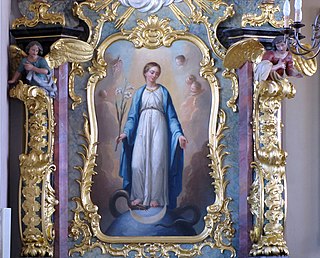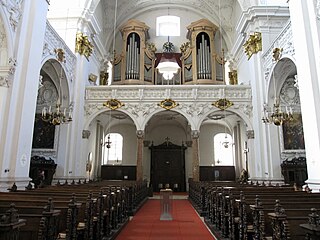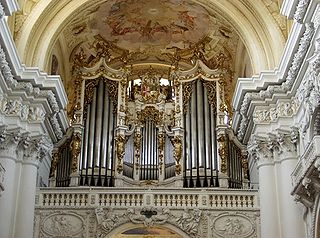Libera me /Libera me, Domine ("Deliver me, my God") is a Roman Catholic responsory that is sung in the Office of the Dead and at the absolution of the dead.
Líbera me is a Roman Catholic responsory that is sung in the Office of the Dead and at the absolution of the dead, a service of prayers for the dead said beside the coffin immediately after the Requiem Mass and before burial. The text of Libera me asks God to have mercy upon the deceased person at the Last Judgment. In addition to the Gregorian chant in the Roman Gradual, many composers have written settings for the text, including Tomás Luis de Victoria, Anton Bruckner, Giuseppe Verdi, Gabriel Fauré, Maurice Duruflé, Igor Stravinsky, Benjamin Britten, Krzysztof Penderecki, Antonio Salieri, Lorenzo Perosi.
Libera me may also refer to:
Music
- Libera me, WAB 21, 1843 motet by Anton Bruckner
- Libera me, WAB 22, 1854 motet by Anton Bruckner
- Libera Me (album), 2008 album by DarkSun

Libera me, WAB 21, is the first of two settings of the absoute Libera me, composed by Anton Bruckner in c. 1843.

Libera me, WAB 22, is the second of two settings of the absoute Libera me, composed by Anton Bruckner in 1854.

Libera Me is the third album by Spanish power metal band DarkSun, released on September 29, 2008.
Film
- Libera me (1993 film), French experimental film directed by Alain Cavalier
- Libera Me (2000 film), South Korean action film

Libera me is a 1993 French experimental film directed by Alain Cavalier. It was entered into the 1993 Cannes Film Festival.

Libera Me is a 2000 South Korean action blockbuster film about a mentally-unbalanced arsonist and the firefighters who struggle to stop him.
| This disambiguation page lists articles associated with the title Libera me. If an internal link led you here, you may wish to change the link to point directly to the intended article. |















